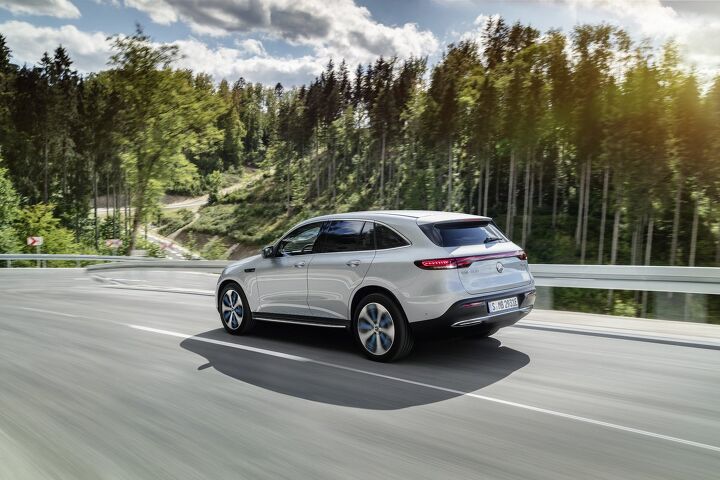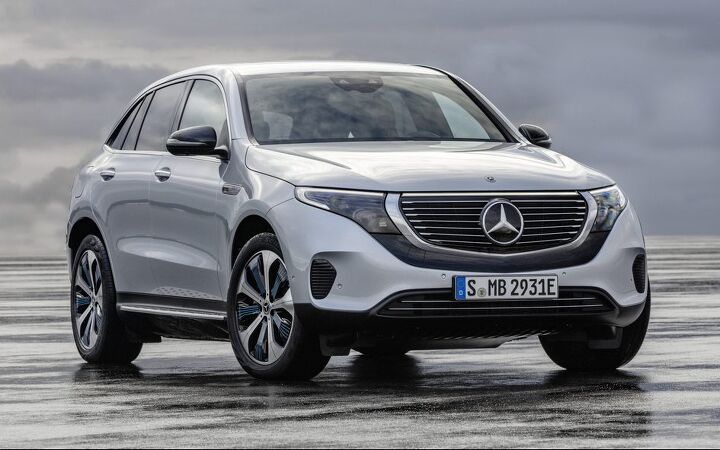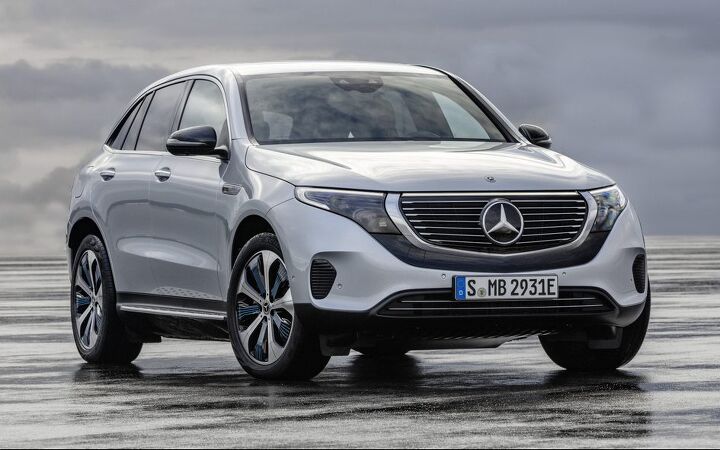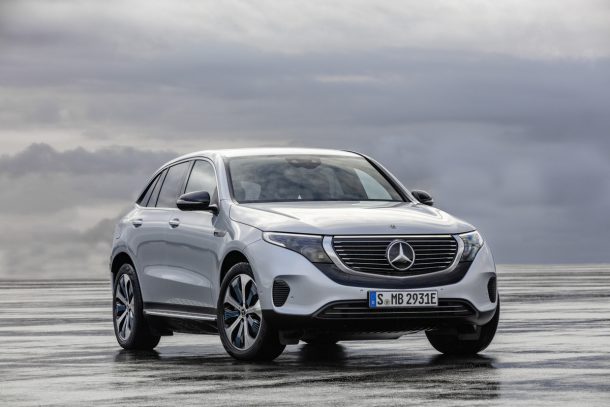#eqc
Report: Battery Shortage Has Mercedes-Benz's Newest EV Struggling to Clear the Tower
The countdown to Mercedes-Benz EQC production last year was preceded by stories about the model’s anticipated range and uncontroversial styling, but when the time came to get EQCs into the hands of buyers, the electric crossover had trouble leaving the launch pad.
Not long after reports emerged of the EQC’s U.S. arrival being delayed by a full year, a German outlet claims Mercedes-Benz has chopped its 2020 production target in half.
Whoa, Hold on There: Mercedes-Benz EQC's Arrival Delayed
The first fully electric Mercedes-Benz, slated to arrive on these shores early next year, will instead spend 2020 backpacking around Europe.
Called the EQC, the conventionally-styled compact EV crossover is positioned to do battle with Jaguar’s I-Pace and Audi’s E-Tron — vehicles that garnered a tepid consumer response in the States, despite claims to the contrary by their respective builders. Mercedes-Benz isn’t saying the year-long delay has anything to do with that, however. It’s apparently all about serving Europeans better.
Amped in Alabama: Mercedes Breaks Ground for Battery Plant
Last year, Mercedes-Benz committed to a Tuscaloosa treat in the form of a billion-dollar upgrade to its existing Deep South facility. Details have surfaced on how that cheddar will be spent, including the construction of a new battery factory for the company’s future EV endeavors.
Mercedes has been entrenched into Alabama for about 20 years now, making SUVs and crossovers that are both sold here and exported to other markets. With this investment in electrification, there’s every chance they’ll be in the area for another two decades.
Mercedes-Benz's 2020 EQC Boasts Plenty of Tech, Less-than-revolutionary Range
Mercedes-Benz has started pre-production on the first vehicle of its electric EQ model range, this one based on the GLC platform and called — what else? — the EQC. It’s a tony but not outlandish electric crossover for posh (but maybe not that posh) types who like the three-pointed star appearing on the front of their vehicle but kind of feel guilty about their carbon footprint.
Luckily, owning an electric car means never having to think about upstream emissions or other unpleasantness that took place before the assembled materials made it to your vehicle.
The EQC, according to M-B, falls under the automaker’s “Progressive Luxury” theme, promising lots of high-tech creature comforts and convenience, as well as an emission-free driving experience. However, it’s starting to become a crowded EV market out there, and some buyers might take exception with one particular aspect of this vehicle.
















Recent Comments